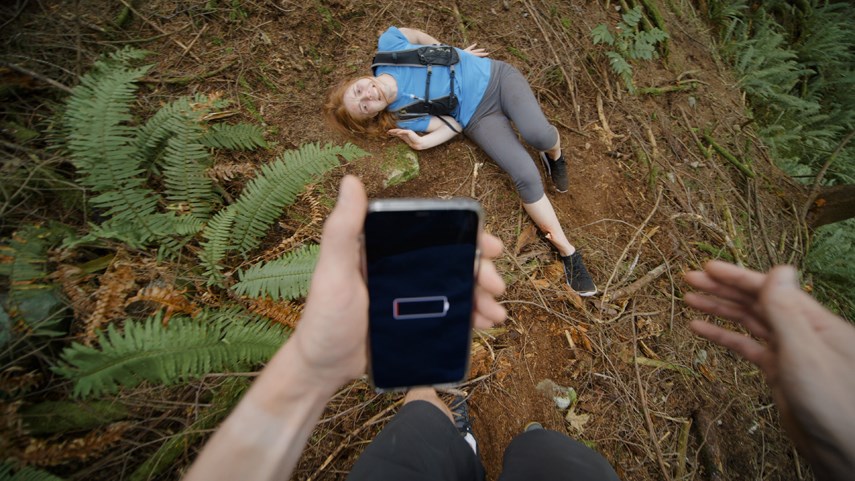As the weather warms up and the busy season begins, North Shore Rescue has debuted an interactive “survive your own adventure” video that the team hopes will stop some backcountry mistakes before they happen.
The first-person perspective video launched Thursday morning puts you in the shoes of a typical Vancouverite meeting a friend for a hike to Brewer Peak and having to make decisions along the way that will determine whether they get home on their own, in a stretcher, or not at all.
Choices in the video include everything from what to pack for a hike to whether it’s a good idea to take a shortcut on the trails. The answers may seem obvious but the entire scenario draws on many real-life rescues the team has been sent on, said Mike Danks, North Shore Rescue team leader.
“These are common mistakes that we see over and over again,” he said.
Like any adventure with multiple paths to choose from, there are dead ends, dead being the key word. Making enough poor decisions will result in one of the hiking pair never being seen again. There are also some rather jarring injuries.
“Some of those scenes are hard to watch,” Danks said. “We wanted this video to have an impact. We wanted it to resonate with the viewer.”
The viewer is always given the option to double back and rethink some decisions. That’s not an option in the real world.
“One small decision can have a profound impact on the rest of your trip,” Danks said. “If we can have any one of those decision points resonate with someone, that's a win for us.”
Danks said the idea for the video came when he and his daughter sat through a similar one on Netflix featuring TV survival/adventure buff Bear Grylls.
If the cinematography looks familiar, it’s because it was produced by Peg Leg Films, the team that made last year’s phenomenal Search and Rescue: North Shore five-part docuseries for the Knowledge Network.
Director Grant Baldwin and his crew came up with the script, hired actors and shot it (and Baldwin even makes a cameo appearance as a hiker making his way home on an ill-advised shortcut). Much of the rescue footage in the video is the real thing left over from the documentary series.
There are more than a dozen outcomes, depending the decisions the viewer makes, Baldwin said.
But unlike the Bear Grylls series, Baldwin wanted North Shore Rescue’s video to be plausible.
“All [his] scenarios are so ridiculous,” he said. “There are very few videos like this.”
Two of the team’s regular sponsors, the Rix Family Foundation and Methanex, put up the funding for the video, specifically because they wanted to contribute to the team’s public education and prevention efforts.
To further that, North Shore Rescue struck a deal with the North Vancouver School District to share the video with the families of 15,000 students, plus 2,000 staff members and it will be shown to senior students in class this fall.
“As the health, safety and well-being of our students and staff is our highest priority, we are excited to share the expertise and knowledge of North Shore Rescue with our community through this video,” said school superintendent Mark Pearmain.
West Vancouver schools may follow, and Danks said they are looking for ways to spread it as far as they can. Search and rescue teams around the province have been breaking records for the number of calls they are tasked with and the video’s lessons are applicable anywhere.
Regardless of how people fare in the interactive video, Danks said, there’s one safety message above all else to remember if you find yourself in trouble in the mountains.
“Call 911. Our services are free,” he said.
The video can be found on North Shore Rescue’s website.




